#alternate histories
Text
Some of my favorite highlights from the Love Death + Robots Art Book!

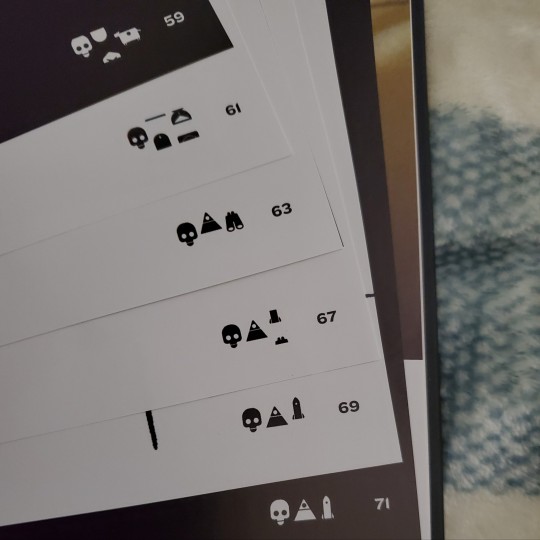



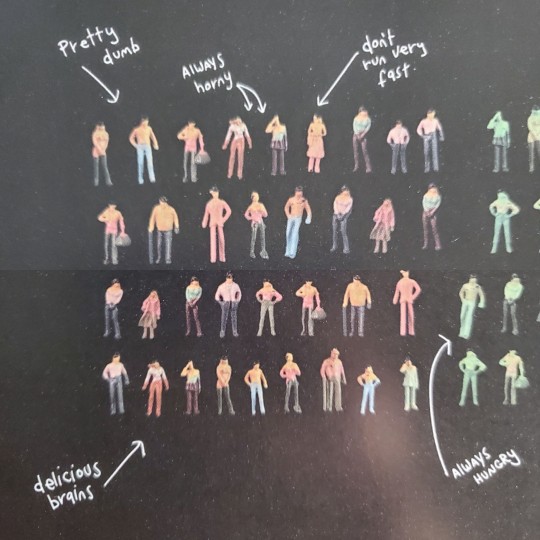

#love death and robots#love death + robots#ld+r#sonnie's edge#alternate histories#kill team kill#night of the mini dead#art book#animation#adult animation
39 notes
·
View notes
Note
I've been trying to plan out a historical fiction story about OTMA in England for ages (George V didn't withdraw the offer of asylum but changed it to just the children and Alexandra didn't want to let go of Alexei, tweaking the timeline of the girls getting measles, typical historical au fiction stuff), and I've been trying to figure out marriages that would make sense for them post revolution. What, if any, royal marriages would make sense for them, and would it be plausible for any of them to marry into the British royal family (like, say, if we're gonna be really crazy...Olga and Bertie?)? Love your blog, by the way!
I think it would be plausible for them to marry into the British Royal Family. After all, Grand Duchess Maria Alexandrovna married one of Queen Victoria's sons, so there is precedent. It might get a little dicey with Nicky having been deposed and they're not technically Grand Duchesses anymore, but I think it could still work. When the Crown Prince of Sweden wanted to marry Louise Mountbatten there was a whole thing about whether it would be considered an equal marriage or not because she had been demoted from Princess Louise to Lady Louise but in the end it was decided she was royal enough and the marriage went forward. OTMA has a more impressive pedigree than Louise, so I think it would be easy to sell them as still “royal enough.”
I think either Olga or Tatiana with Bertie could be a good fit. Especially if you're still planning for David to do the whole Wallis Simpson abdication thing. I could imagine that KGV and May might not be super enthused about a future Russian queen given, you know, the revolution and all that, but they might be willing to go for a second son and then WHOOPS we get Queen Olga/Tatiana/whoever anyway when David abdicates. If we want to avoid a Russian queen, Anastasia could marry Henry or George. Anastasia might find Henry kind of boring, though, and George might be TOO exciting for sheltered OTMA given some of his escapades in the 1920s.
I know I said I didn't think Dickie/Mashka would happen, but in THIS scenario, with them in England, I'd say the chances are somewhat improved. Especially if--and I don't know what your plans are here--Nicholas and Alexandra have been killed in the revolution. I'd imagine in that scenario Aunt Victoria and Uncle Louis would be their guardians and they aren’t Orthodox and wouldn’t have the first cousin hang up. Whether Maria herself would have a problem with the first cousin rule I don't know, but if Dickie could really sweep her off her feet, her romantic streak might overrule it. And obviously the unequal marriage thing is no longer really a concern, either.
Otherwise I’d browse wikipedia for Dukes and Earls. It wouldn’t have the potential political messiness of a Romanov marrying into the British Royal Family, but these other aristocratic families would probably love to brag about having a grand duchess (former or otherwise) as a daughter-in-law. Or you could use England as a base to introduce them to other royals. Olav of Norway is a little young (born 1903), but his mother Maud was a British princess. The Danish princes Frederik (1899) and Knud (1900) are also options. Also George II (1890), Paul (1901) and Christopher (1888) of Greece.
Also maybe look up Russian nobles living in exile in England? Xenia’s sons all married Russian nobles in exile, I could imagine OTMA ending up with something like that too. For example, Nina Georgievna married Prince Paul Chavchavadze (1899) in London; OTMA could have met him or someone similar in England, too.
13 notes
·
View notes
Text
How would history change if John f Kennedy was killed by registeel
21K notes
·
View notes
Text

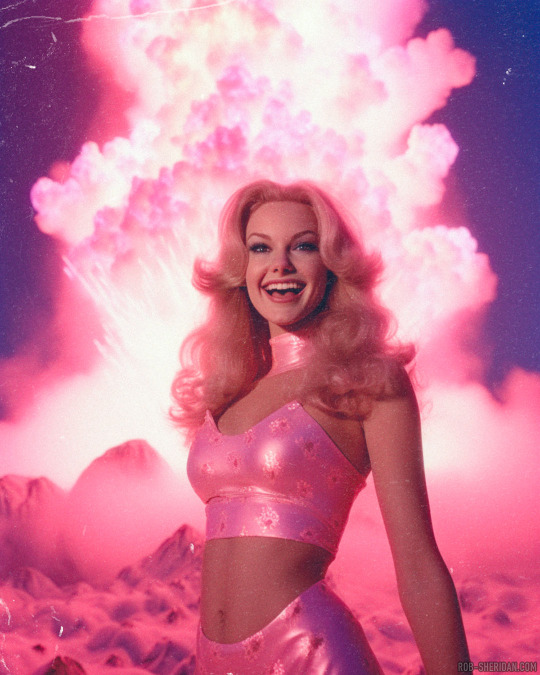
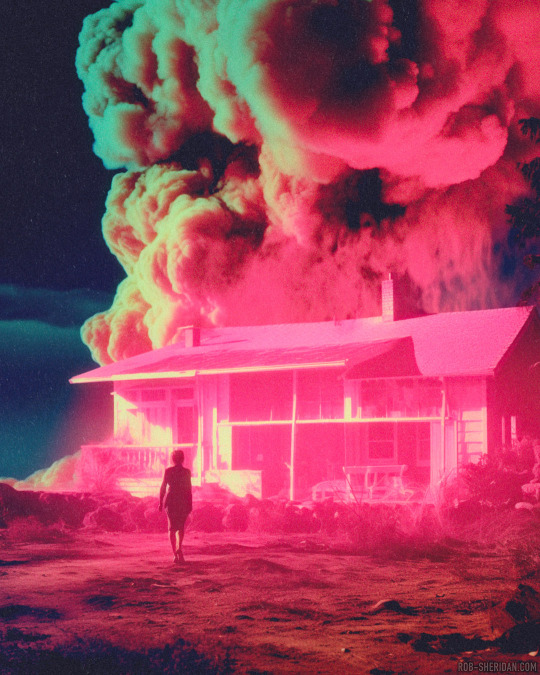
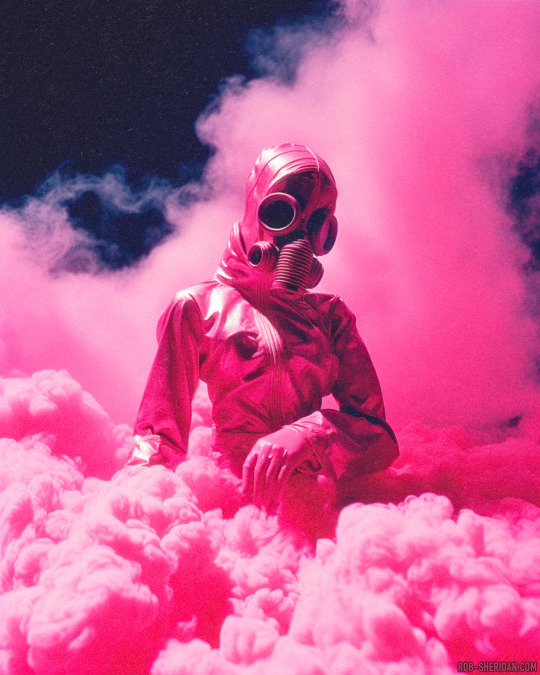

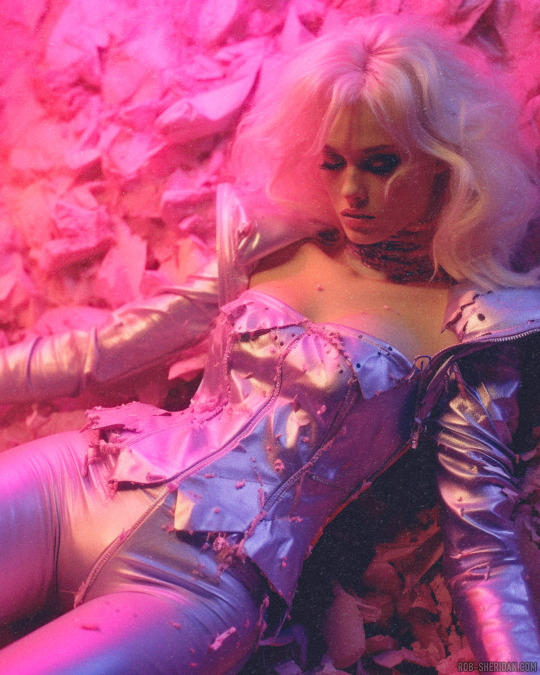

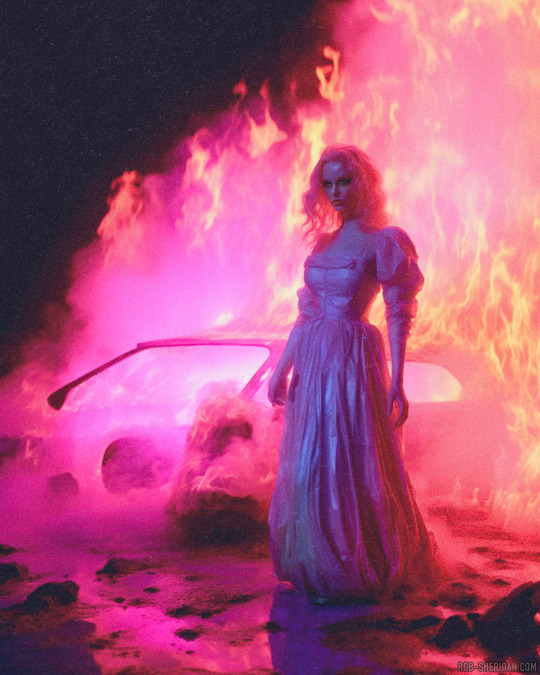


[Update: Apocalypse in Pink part 2 is out now]
Before Barbenheimer, there was “Apocalypse in Pink,” the August 1983 theme of fashion/culture magazine SPECTAGORIA. The issue’s controversial imagery of Barbie-esque models attempting to stay gorgeous and glamorous amidst nuclear annihilation sought to, in the words of editor/photographer Sera Clairmont, “revel in the morbid absurdity of the new American condition,” an “anxiety vibrating underneath all our plastic smiles.”
“It’s The Hot Pink Cold War,” Clairmont wrote in her introduction. “It’s ‘Material Girl’ on the radio and ‘WarGames’ at the drive-in. It’s ‘Girls Just Wanna Have Fun’ interrupted by the emergency broadcast signal. We’re told to look sexy, dress fashionable, make money, and spend money, but be sure we’re just the right amount of terrified about the bomb. Get that Malibu dream home, keep working on that perfect body, sip cocktails by the pool in your little pink bikini and watching the stocks go up — but STAY VIGILANT! and for God’s sake vote Republican, because that dream home could melt into a pink plastic inferno at any given moment. Just don’t stop smiling as the blast liquefies your skin into bubbling ooze like a Barbie doll in a microwave - it’s bad for the economy.”
***Continued in PART 2***
---------
NOTE: This is a work of fiction created by me. This alternate reality horror story is part of my NightmAIres narrative art series (visit that link for a lot more). NightmAIres are windows into other worlds and interconnected alternate histories, conceived/written by me and visualized with synthography and Photoshop.
If you enjoy my work, consider supporting me on Patreon for frequent exclusive hi-res wallpaper packs, behind-the-scenes features, downloads, events, contests, and an awesome fan community. Direct fan support is what keeps me going as an independent creator, and it means the world to me.
#rob sheridan#barbie#barbie movie#barbenheimer#synthography#nightmAIres#ai horror#ai art#synthography horror#alternate history#writing#spectagoria#sera clairmont#horror fashion#ai fashion
23K notes
·
View notes
Text

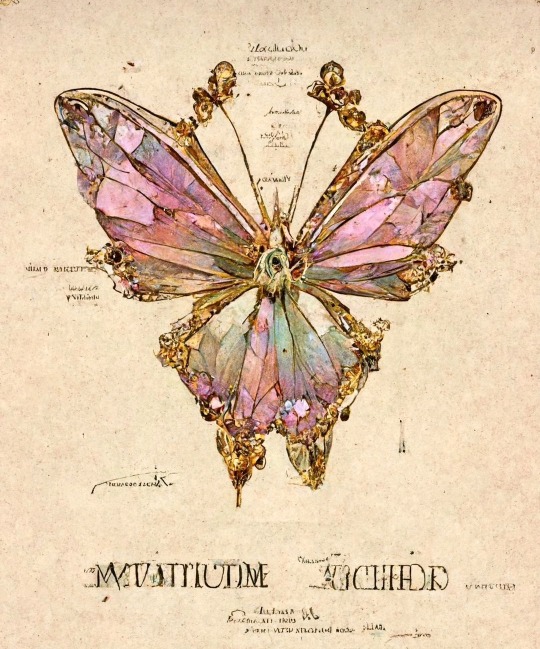
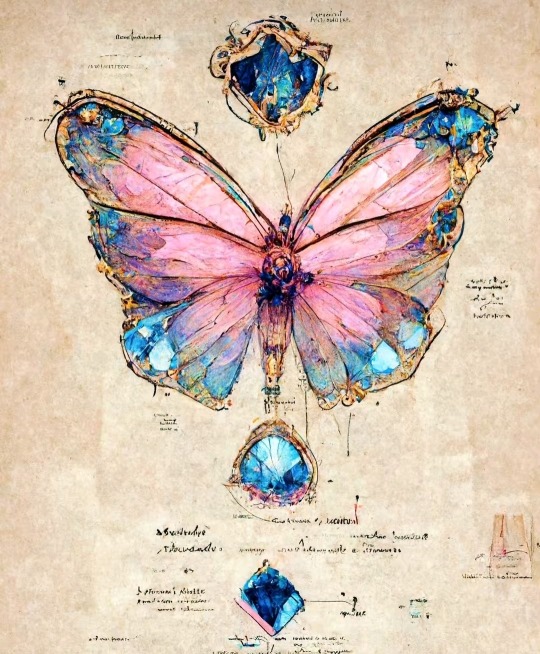
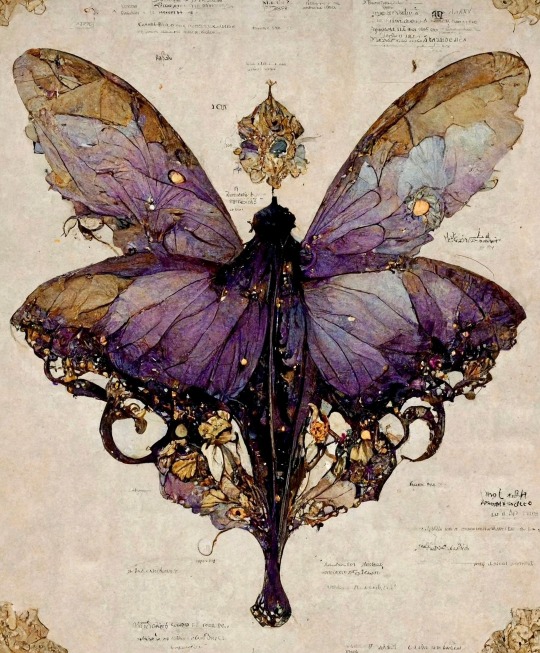
brfantasme.
#butterfly#drawing#hand drawn#digital painting#painter#oil painting#paint#painting#book art#art history#artist#art#alternative#aesthetic#dark academia#dark academic aesthetic#dark aesthetic#aestheitcs#dark#light acadamia aesthetic#light academia#tiktok#ai art#ai image#ai artwork
5K notes
·
View notes
Text
Why do people keep recommending Dreamwidth as a Tumblr alternative, when Dreamwidth and Tumblr are so different?
To be flat-out honest, it's because Dreamwidth has so many things that Tumblr users say they want, even if it's also lacking a lot of features that Tumblr users have come to love:
Dreamwidth has incredibly lax content hosting rules. I'd say that it's slightly more restrictive than AO3, but only just slightly, and only because AO3's abuse team has been so overwhelmed and over-worked. Otherwise, the hosting policies are pretty similar. You want to go nuts, show nuts? You can do that on Dreamwidth.
In fact, Dreamwidth is so serious about "go nuts, show nuts", it gave up the ability to accept transactions through PayPal in 2009 to protect our ability to do that. (It's also one reason why Dreamwidth doesn't have an app: Dreamwidth will never be beholden to Apple's content rules this way.)
Dreamwidth cares about your privacy; it doesn't sell your data, and barely collects any to begin with. As far as I'm aware, it only collects what it needs to run the site. The owners have also spoken out on behalf of internet privacy many times, and are prepared to put their money where their mouth is.
No ads. Ever. Period. They mean it. Dreamwidth is entirely user funded.
Posts viewed in reverse chronological order; no algorithm, opt-in or otherwise. No algorithm at all. No "For You" or "Suggested" page. You still entirely create and curate your own experience.
The ability to make posts that only your "mutuals", or even only a specific subset of your "mutuals", can see. Want to make a post that's only open to Bonnie, Clyde, Butch, and Cassidy? You can do that! Want to make a post that's only open to Bonnie and Butch, but Clyde and Cassidy can't see shit? You can do that, too!
The owners have forsworn NFTs and the blockchain in general. Not as big a worry now as it was even a year ago, but still good to know!
We are explicitly the customers of Dreamwidth. Dreamwidth wants to make us happy, so any changes they make (and they do make changes) are made with us in mind, and after exploring as many possibilities as they can.
Dreamwidth is very transparent about their policies and changes. If you want to know why they're making a specific change, or keeping or getting rid of a feature, they will tell you. You don't have to find out ten months later that they're locked into a contract to keep it for a year (cough cough Tumblr Live cough cough).
So those are some things that Tumblr users would probably love about Dreamwidth.
Another reason Dreamwidth keeps being recommended is that a significant portion of the Age 30+ crowd spent a lot of earlier fandom years on a site known as LiveJournal. Dreamwidth may not be much like Tumblr, but it it started out as a code fork of LiveJournal, so it will be very familiar to anyone who spent any time there. Except better.
Finally, we're recommending Dreamwidth because some of the things that Tumblr users want are just... not going to happen on the web as it is now. Image hosting is the big one for this. Maybe in the future, the price of data will be much cheaper, and Dreamwidth will be able to host as much as we all want for a pittance that a fraction of the userbase will happily pay for everyone, but right now that's just not possible.
Everywhere you want to go that hosts a lot of images will either be running lots of ads, selling your data, or both.
Dreamwidth knows how much it costs to host your data, and has budgeted for that. They are hosting within their means, within our means.
Dreamwidth is the closest thing we may ever get to AO3 as a social media platform. One of the co-owners is from, and still in, fandom; she knows our values, because they are also her values. It may as well be the Blogsite Of Our Own.
#giving this its own post#let me tell you about#dreamwidth#let me tell you about dreamwidth#tumblr alternatives#blogsite of our own#fandom history
5K notes
·
View notes
Text
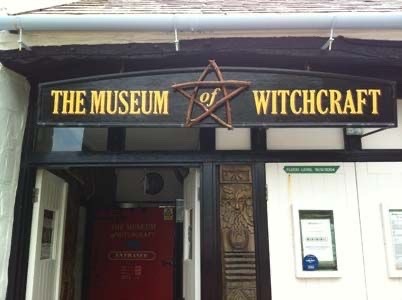
The Museum of Witchcraft in Boscastle, Cornwall.
#goth#goth aesthetic#gothic#mall goth#spooky#vampire#2000s goth#alt#alternative#goth culture#witchcraft#museum#history#cornwall#web finds
2K notes
·
View notes
Text
Write the bonkers, unhinged, weird idea that you think no actual person will like. Because guess what? You're an actual person, and you liking it still counts.
#last week I wrote a medical history podcast fic#in an alternate universe where a/b/o was a thing#and I had the hosts discuss heat suppressants#why?#because I could#and it turns out a friend of mine#out of nowhere#told me that was their exact shit#you might not be alone in your weird#but even if you are#weird is fun#have fun with it
32K notes
·
View notes
Text

Filbert Stuart, Presidential Affairs (1823-1825)
Oil on canvas, 97.5 in × 62.5 in
context

@glitterfartsprinkle GET YOUR ACRYLICS OUT!!!!!!!!!!!!! 😁😁😁😁😁😁😁😁😁😁😁😁😁😁😁😁
@ravewing as well bc you were the OP. sorry that papyrus undertale took your man
#There was going to be a multipart comic in addition to this#but i think. i'd have to be paid a minimum of 50 dollars for me to do that#i hope this suffices#ntls-24722#digital#papyrus#undertale papyrus#papyrus undertale#undertale#undertale fanart#hotland art club#alternate history#george washington#us history#hamilton#hamilton fanart#unreality#art#artists on tumblr#artists of tumblr#digital art#shitpost#“biggest tryhard ever” trophy goes to.... ME#utdr#utdr fanart#ut fanart#declarationpaper
625 notes
·
View notes
Photo

The State of Connecticut in a universe where they kept all their claims in history
437 notes
·
View notes
Text
We should have superheroes in more cities outside of the US and in more time periods.
Some examples off the top of my head:
A 13th century hero in the streets of Constantinople protecting people during the Latin occupation. They take the guise of a vengeful angel, making their acts of heroism seem supernatural.
A Chinese superhero team in Hong Kong fighting against the British during the Opium Wars. They're themed after the animals of the Chinese Zodiac.
An ancient Sumerian superhero prowling the streets of the first proper city on Earth. They come into conflict with both criminals and the king, who fears being usurped.
An Aztec superhero in pre-Columbian Tenochtitlan. They have aquatic powers and get around through the canals.
A West-African superhero fighting slavers both foreign and local during the height of the Transatlantic Slave Trade. They're an escaped slave themselves and they adopt orphaned children, many of whom become their sidekicks, Batman and Robin style.
#superheroes#writing#history#superhero#and yes I know Marvel 1602#it's a good start but it's not enough#also it's all alternate versions of established heroes
774 notes
·
View notes
Text
"During the 1960s economic collapse of the United States, a roving vigilante group with revolutionary ideals became infamous for using their investigative skills to seek out corruption at its source… (zoinks!)"

from: u/marx_is_secret_santa on reddit
#source: reddit#alternate history#scooby gang#scooby doo#velma dinkley#daphne blake#fred jones#mystery inc#mystery incorporated#1960s#students for a democratic society
4K notes
·
View notes
Text
My alternate universe fantasy colonial Hong Kong is more authoritarian and just as racist but less homophobic than in real life, should I change that?
@floatyhands asked:
I’m a Hongkonger working on a magical alternate universe dystopia set in what is basically British colonial Hong Kong in the late 1920s. My main character is a young upper middle-class Eurasian bisexual man.
I plan to keep the colony’s historical racial hierarchy in this universe, but I also want the fantasy quirks to mean that unlike in real life history, homosexuality was either recently decriminalized, or that the laws are barely enforced, because my boy deserves a break. Still, the institutions are quite homophobic, and this relative tolerance might not last. Meanwhile, due to other divergences (e.g. eldritch horrors, also the government’s even worse mishandling of the 1922 Seamen's Strike and the 1925 Canton-Hong Kong Strike), the colonial administration is a lot more authoritarian than it was in real history. This growing authoritarianism is not exclusive to the colony, and is part of a larger global trend in this universe.
I realize these worldbuilding decisions above may whitewash colonialism, or come off as choosing to ignore one colonial oppression in favor of exaggerating another. Is there any advice as to how I can address this issue? (Maybe I could have my character get away by bribing the cops, though institutional corruption is more associated with the 1960s?) Thank you!
Historical Precedent for Imperialistic Gay Rights
There is a recently-published book about this topic that might actually interest you: Racism And The Making of Gay Rights by Laurie Marhoefer (note: I have yet to read it, it’s on my list). It essentially describes how the modern gay rights movement was built from colonialism and imperialism.
The book covers Magnus Hirschfeld, a German sexologist in the early 1900s, and (one of) his lover(s), Li Shiu Tong, who he met in British Shanghai. Magnus is generally considered to have laid the groundwork for a lot of gay rights, and his research via the Institut für Sexualwissenschaft was a target of Nazi book-burnings, but he was working with imperial governments in an era where the British Empire was still everywhere.
Considering they both ended up speaking to multiple world leaders about natural human sexual variation both in terms of intersex issues and sexual attraction, your time period really isn’t that far off for people beginning to be slightly more open-minded—while also being deeply imperialist in other ways.
The thing about this particular time period is homosexuality as we know it was recently coming into play, starting with the trial of Oscar Wilde and the rise of Nazism. But between those two is a pretty wildly fluctuating gap of attitudes.
Oscar Wilde’s trial is generally considered the period where gay people, specifically men who loved men, started becoming a group to be disliked for disrupting social order. It was very public, very scandalous, and his fall from grace is one of the things that drove so many gay and/or queer men underground. It also helped produce some of the extremely queercoded classical literature of the Victorian and Edwardian eras (ex: Dracula), because so many writers were exploring what it meant to be seen as such negative forces. A lot of people hated Oscar Wilde for bringing the concept to such a public discussion point, when being discreet had been so important.
But come the 1920s, people were beginning to wonder if being gay was that bad, and Mangus Hirschfeld managed to do a world tour of speaking come the 1930s, before all of that was derailed by wwii. He (and/or Li Shiu Tong) were writing papers that were getting published and sent to various health departments about how being gay wasn’t an illness, and more just an “alternative” way of loving others.
This was also the era of Boston Marriages where wealthy single women lived together as partners (I’m sure there’s an mlm-equivalent but I cannot remember or find it). People were a lot less likely to care if you kept things discreet, so there might be less day to day homophobia than one would expect. Romantic friendships were everywhere, and were considered the ideal—the amount of affection you could express to your same-sex best friend was far above what is socially tolerable now.
Kaz Rowe has a lot of videos with cited bibliographies about various queer disasters [affectionate] of the late 1800s/early 1900s, not to mention a lot of other cultural oddities of the Victorian era (and how many of those attitudes have carried into modern day) so you can start to get the proper terms to look it up for yourself.
I know there’s a certain… mistrust of specifically queer media analysts on YouTube in the current. Well. Plagiarism/fact-creation scandal (if you don’t know about the fact-creation, check out Todd in the Shadows). I recommend Kaz because they have citations on screen and in the description that aren’t whole-cloth ripped off from wikipedia’s citation list (they’ve also been published via Getty Publications, a museum press).
For audio-preferring people (hi), a video is more accessible than text, and sometimes the exposure to stuff that’s able to pull exact terms can finally get you the resources you need. If text is more accessible, just jump to the description box/transcript and have fun. Consider them and their work a starting place, not a professor.
There is always a vulnerability in learning things, because we can never outrun our own confirmation bias and we always have limited time to chase down facts and sources—we can only do our best and be open to finding facts that disprove what we researched prior.
Colonialism’s Popularity Problem
Something about colonialism that I’ve rarely discussed is how some colonial empires actually “allow” certain types of “deviance” if that deviance will temporarily serve its ends. Namely, when colonialism needs to expand its territory, either from landing in a new area or having recently messed up and needing to re-charm the population.
By that I mean: if a fascist group is struggling to maintain popularity, it will often conditionally open its doors to all walks of life in order to capture a greater market. It will also pay its spokespeople for the privilege of serving their ends, often very well. Authoritarians know the power of having the token supporter from a marginalized group on payroll: it both opens you up directly to that person’s identity, and sways the moderates towards going “well they allow [person/group] so they can’t be that bad, and I prefer them.”
Like it or not, any marginalized group can have its fascist members, sometimes even masquerading as the progressives. Being marginalized does not automatically equate to not wanting fascism, because people tend to want fascist leaders they agree with instead of democracy and coalition building. People can also think that certain people are exaggerating the horrors of colonialism, because it doesn’t happen to good people, and look, they accept their friends who are good people, so they’re fine.
A dominant fascist group can absolutely use this to their advantage in order to gain more foot soldiers, which then increases their raw numbers, which puts them in enough power they can stop caring about opening their ranks, and only then do they turn on their “deviant” members. By the time they turn, it’s usually too late, and there’s often a lot of feelings of betrayal because the spokesperson (and those who liked them) thought they were accepted, instead of just used.
You said it yourself that this colonial government is even stricter than the historical equivalent—which could mean it needs some sort of leverage to maintain its popularity. “Allowing” gay people to be some variation of themselves would be an ideal solution to this, but it would come with a bunch of conditions. What those conditions are I couldn’t tell you—that’s for your own imagination, based off what this group’s ideal is, but some suggestions are “follow the traditional dating/friendship norms”, “have their own gender identity slightly to the left of the cis ideal”, and/or “pretend to never actually be dating but everyone knows and pretends to not care so long as they don’t out themselves”—that would signal to the reader that this is deeply conditional and about to all come apart.
It would, however, mean your poor boy is less likely to get a break, because he would be policed to be the “acceptable kind of gay” that the colonial government is currently tolerating (not unlike the way the States claims to support white cis same-sex couples in the suburbs but not bipoc queer-trans people in polycules). It also provides a more salient angle for this colonial government to come crashing down, if that’s the way this narrative goes.
Colonial governments are often looking for scapegoats; if gay people aren’t the current one, then they’d be offered a lot more freedom just to improve the public image of those in power. You have the opportunity to have the strikers be the current scapegoats, which would take the heat off many other groups—including those hit by homophobia.
In Conclusion
Personally, I’d take a more “gays for Trump” attitude about the colonialism and their apparent “lack” of homophobia—they’re just trying to regain popularity after mishandling a major scandal, and the gay people will be on the outs soon enough.
You could also take the more nuanced approach and see how imperialism shaped modern gay rights and just fast-track that in your time period, to give it the right flavour of imperialism. A lot of BIPOC lgbtqa+ people will tell you the modern gay rights movement is assimilationalist, colonialist, and other flavours of ick, so that angle is viable.
You can also make something that looks more accepting to the modern eye by leaning heavily on romantic friendships that encouraged people waxing poetic for their “best friends”, keeping the “lovers” part deeply on the down low, but is still restrictive and people just don’t talk about it in public unless it’s in euphemisms or among other same-sex-attracted people because there’s nothing wrong with loving your best friend, you just can’t go off and claim you’re a couple like a heterosexual couple is.
Either way, you’re not sanitizing colonialism inherently by having there be less modern-recognized homophobia in this deeply authoritarian setting. You just need to add some guard rails on it so that, sure, your character might be fine if he behaves, but there are still “deviants” that the government will not accept.
Because that’s, in the end, one of the core tenants that makes a government colonial: its acceptance of groups is frequently based on how closely you follow the rules and police others for not following them, and anyone who isn’t their ideal person will be on the outs eventually. But that doesn’t mean they can’t have a facade of pretending those rules are totally going to include people who are to the left of those ideals, if those people fit in every other ideal, or you’re safe only if you keep it quiet.
~ Leigh
#colonialism#colonization#worldbuilding#alternate history#history#lgbt#china#hong kong#british empire#ask
529 notes
·
View notes
Text

A quick pre war trio doodle before homework :>
#transformers#au#art#digitalart#photoshop#character design#decepticons#autobots#redesign#Megatronus is a former miner (slave) and forced gladiator finally rescued and living in Iacon with Orion Pax#alternate universe#doodle#wip#sketch#drawing#elita one#ariel#Megatronus#megatron#orion pax#Optimus prime#megop#im still working on their prewar designs lmao#orion pax is an archivist and a history nerd (like me 💀)#Megatronus is a former miner (slave) and former forced gladiator who was rescued and living in iacon with Orion Pax#elita is a famous singer sent so by alpha trion to help orion get out of his introverted shell
362 notes
·
View notes
Text

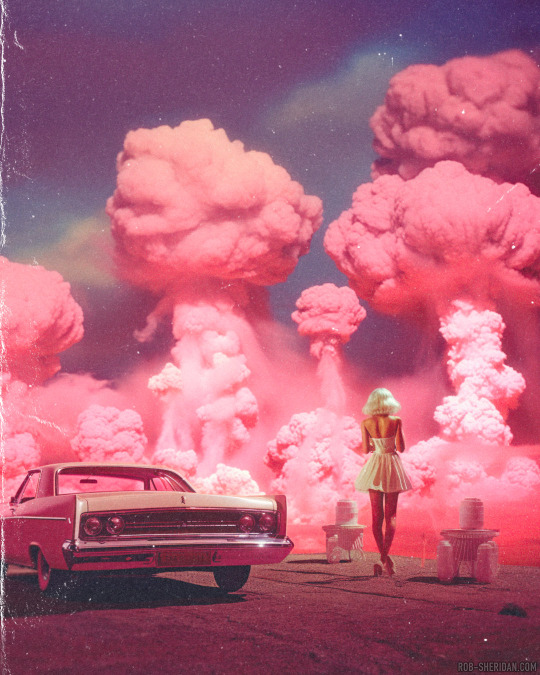

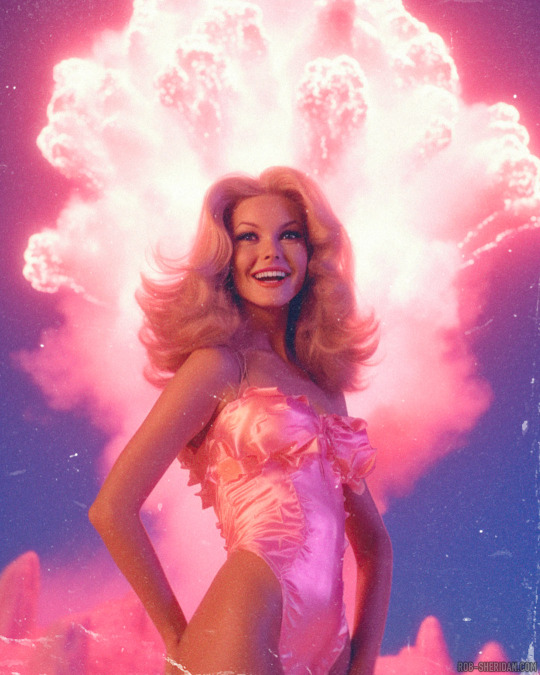
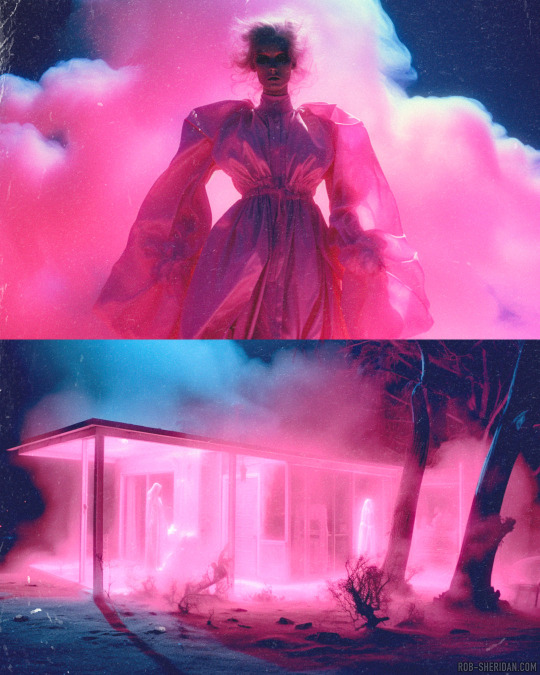
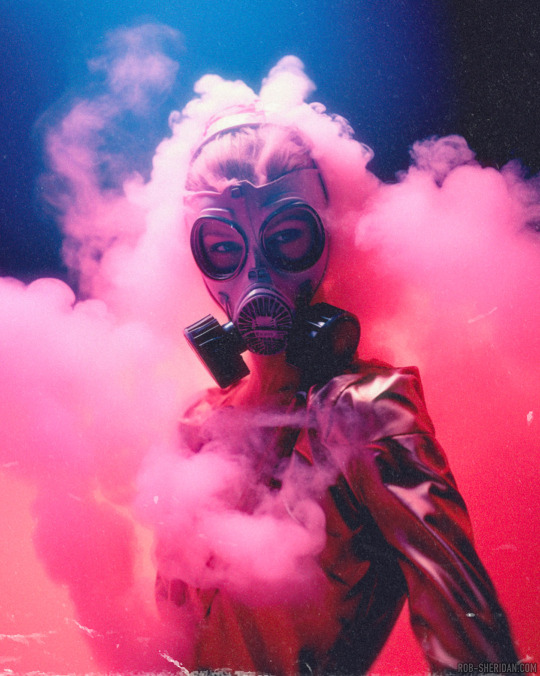

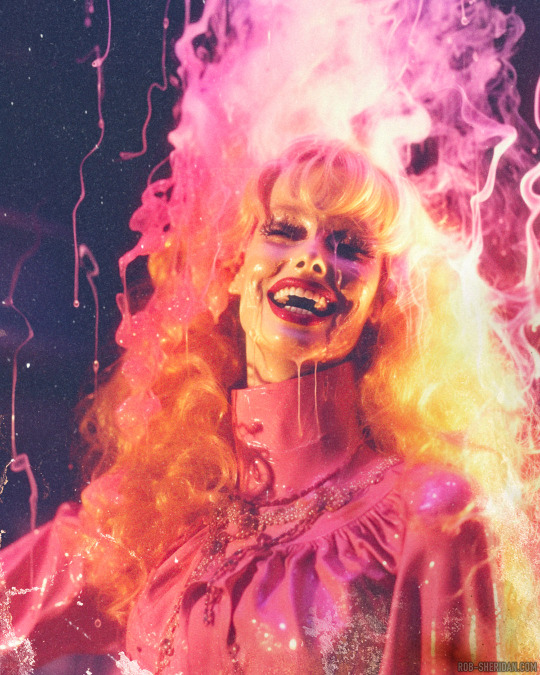


“Apocalypse in Pink” part 2 (see part 1 here), from the August 1983 issue of SPECTAGORIA Magazine. Sera Clairmont’s celebrated underground fashion magazine was always scratching at the bleeding edge of culture, deftly navigating the trends of the Reagan ‘80s by simultaneously coopting and corrupting its materialistic obsessions. Never was that theme on visceral display than in this controversial issue. Apocalypse in Pink found Clairmont’s “Barbie dolls” trying to keep their glamour and their plastic smiles in the flames of a Capitalist Cold War simultaneously obsessed with materialism and annihilation; an America that, Clairmont wrote, “relentlessly asks women if we’re beautiful enough, if our clothes are fancy enough, if our pursuits are ambitious enough, and at the end of every night, if we know where our children are.”
In true Spectagoria fashion, what begins as stylish playful “nuclear Barbie” iconography gradually descends into horrific flames and melting pink plastic bodies, with only the womens’ smiles in tact on their smoldering skeletons at the end of the issue.
Reportedly, this issue was sent to Spectagoria subscribers in a package that included a pink lighter and a note that read, “when you’re finished reading, finish the job.” When burned, the magazine was said to ignite in a dazzling show of hot pink flames that sparkled and crackled, a performance art to complete the issue’s vision. As a result, Apocalypse in Pink is one of the most rare and coveted issues of the magazine, with no complete copies known to exist.
Most who have studied Spectagoria lore conclude that the exterior of the magazine was likely coated in a chemical powder that created the fantastical pink flames. But such a magic show has been meaty fodder for those who believe the rumors of occult powers and dark witchcraft surrounding the publication…
---------
NOTE: Spectagoria is an ongoing work of fiction created by me. This alternate reality horror story is part of my NightmAIres narrative art series (visit that link for a lot more). NightmAIres are windows into other worlds and interconnected alternate histories, conceived/written by me and visualized with synthography and Photoshop.
If you enjoy my work, consider supporting me on Patreon for frequent exclusive hi-res wallpaper packs, behind-the-scenes features, downloads, events, contests, and an awesome fan community. Direct fan support is what keeps me going as an independent creator, and it means the world to me.
#barbenheimer#barbie#barbie movie#barbie fashion#rob sheridan#spectagoria#nightmAIres#oppenheimer#sera clairmont#alternate history#synthography#synthography horror#ai horror#ai fashion#80s fashion#80s horror#80s aesthetic#horror art#writing
3K notes
·
View notes
Text









Perfect blend of science and art.
#pottery#pottery art#pottery aesthetic#clay#potter#ceramics#history#archeology#sculpted#porcelain#alternative#aesthetic#dark academia#dark academic aesthetic#dark aesthetic#aestheitcs#dark#art#light acadamia aesthetic#light academia#hobby
504 notes
·
View notes